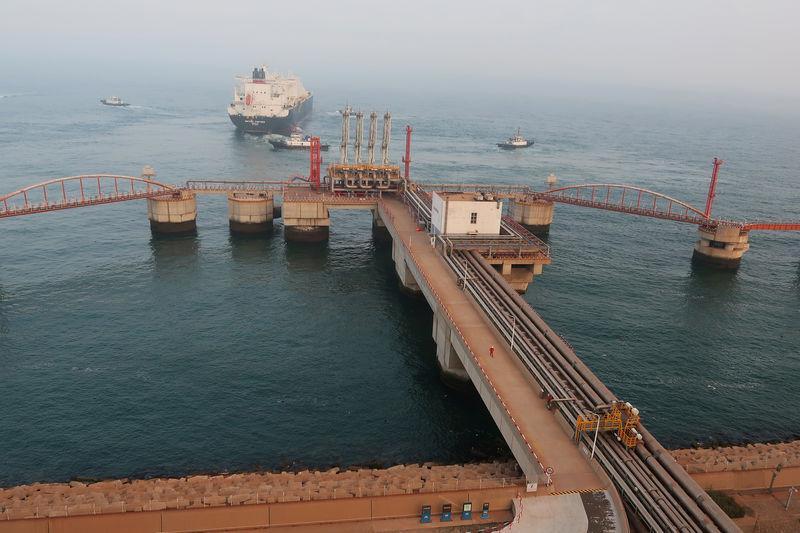By Florence Tan
HOUSTON (Reuters) - Liquefied natural gas (LNG) producers must avoid becoming over-reliant on the strong Chinese demand growth seen in the past two years and should intensify efforts to broaden their markets and create new uses for the fuel, senior company executives said at an energy conference this week.
The warnings were underscored by this year's drop in Asian spot prices for the super-cooled gas. LNG prices this week fell to their lowest for this time of the year since 2016, weighed down by rich supplies.
China became the world's second largest LNG importer after Japan in 2018 after imports nearly doubled from the previous year. The country's robust appetite served to underpin spot prices even as a wave of new supplies from Australia, Russia and the United States swept into the market.
"We are becoming too reliant on China in the last couple of years," Woodside Petroleum's Chief Executive Officer Peter Coleman warned at the CERAWeek energy conference in Houston earlier this week.
"It worries me because we've seen others drop off in the same period for demand."
LNG consultancy Poten & Partners has forecast 33 million tonnes of new supply in 2019, but only 16 million tonnes of extra demand. Demand growth in China could slow to 8 million tonnes in 2019 against the 15.7 million tonnes in 2018, according to Wood Mackenzie.
"I would caution the LNG industry not to make linear extrapolations of Chinese LNG demand based on what you've seen in the last two years," Hendrik Gordenker, chairman of Japan's JERA Co, a fuel trading joint venture between Tokyo Electric Power and Chubu Electric Power, told the conference.
China has choices in terms of potential energy supplies, including gas from Russia and central Asia, and domestic shale gas, said Gordenker who heads the world's largest LNG buyer. The nation also is developing renewable energy sources and could continue to tap coal, he said.
To ease reliance on China, LNG producers must broaden their markets, develop new uses for the gas and continue to push for a carbon tax globally to nudge out coal, executives said.
"We need to continue to develop a broader market base, or else we run the risk that other commodities have had of just becoming so focused on Chinese growth that it can become extremely additive," Woodside's Coleman said.
"We need to go a lot harder after coal, probably best way to do that is to get a common carbon price around the world," he said, adding that using LNG for shipping is also a way to increase the fuel's demand.

(GRAPHIC: LNG demand growth - https://tmsnrt.rs/2U82jSn)